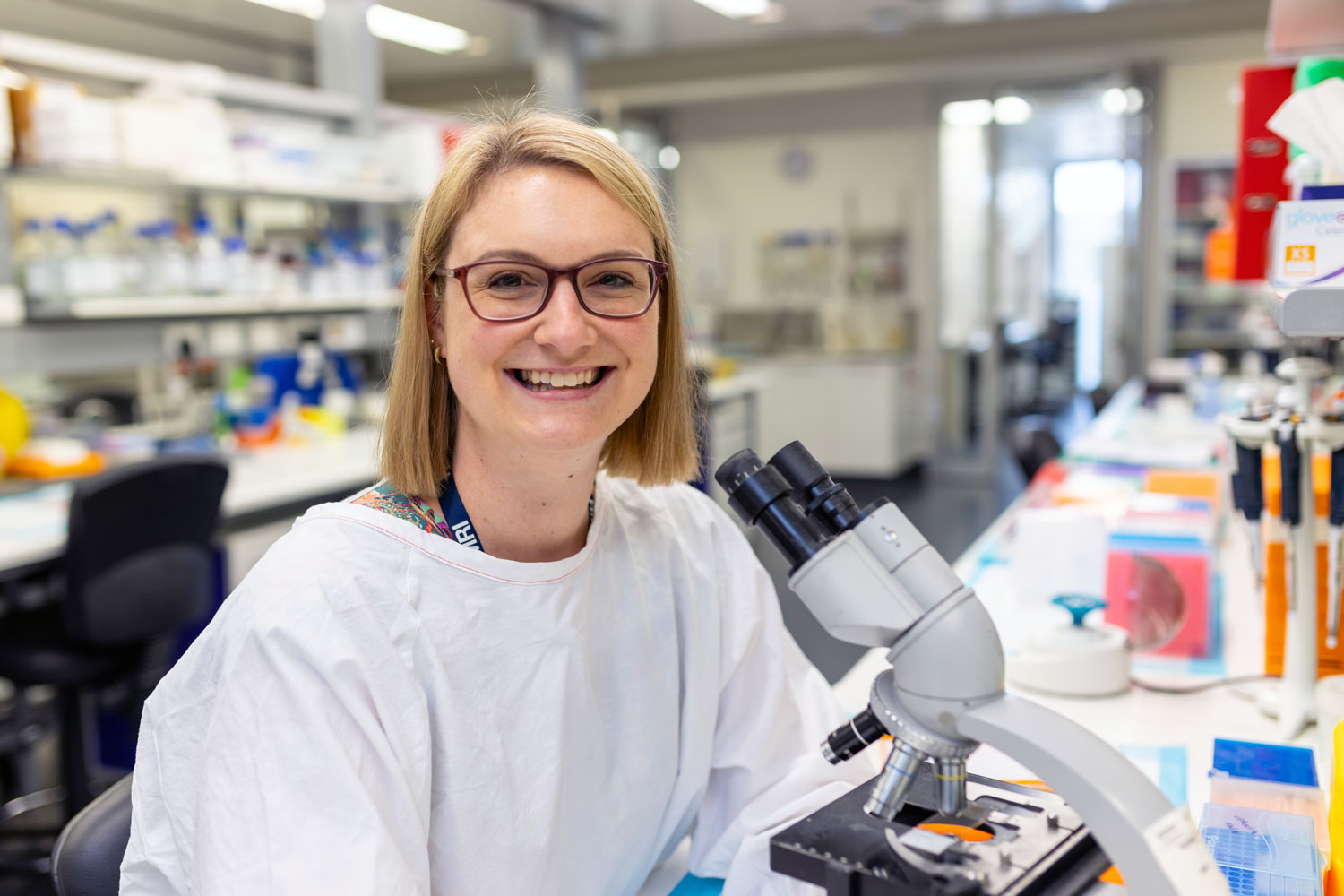Researcher Highlights
Preventing the mental and behavioural risks of preterm birth
Dr Julia Shaw
Dr Julia Shaw is a postdoctoral researcher working in the Pregnancy Compromise and Neuroprotection group with the Mothers & Babies Research Program. Her goal is to restore brain development trajectories in the immediate neonatal period.

Julia's work is all about neurosteroid loss in preterm fetuses and how it can negatively impact the maturing brain.
"In the third trimester of pregnancy, the brain undergoes rapid development, and one of the key promoters of this is neurosteroids," she says.
Neurosteroids are a class of naturally occurring compounds synthesised in the brain and other parts of the nervous system. They play a significant role in regulating neuronal excitability, mood, stress responses and other physiological functions.
Neurosteroids are supplied by the placenta to the developing fetus and subsequently lost at birth once separation from the placenta occurs.
"When birth happens early, as in preterm birth, the neurosteroids are lost too soon, and brain development is significantly impacted, " she continues. "This can lead to behavioural, learning, and mental health impairments."
"If we can reinstate the supply of neurosteroids postnatally, then we could prevent this cascade of effects."
The preterm babies affected
Julia has always been interested in how the brain develops. But a big drawcard for her to this work was the potential to improve the quality of life for babies born preterm.
Globally, 10 per cent of births yearly are preterm, even in developed nations like Australia. That's 13.4 million babies annually.
This is an astounding number of babies whose lives could be drastically improved by a simple postnatal neurosteroid-based therapy administered between birth and full term.
"Even babies born in the 32-37 week range can appear well at the time of birth. However, they can go on to develop neurological impairments," says Julia.
This includes learning delays, behavioural disorders like ADHD, and mental health disorders including depression and anxiety. These can greatly affect their and their family's quality of life.
Clinical collaboration in New Zealand
In the first year of her PhD, Julia collaborated with a leading neonatologist at Wellington Hospital in New Zealand.
Wellington Hospital NICU services the central region of New Zealand and is, therefore, a major hub for neonatal intensive care. This collaboration also extended to researchers at the University of Otago.
She made numerous trips to Wellington to perform experiments with these researchers under the supervision of the neonatologist. This meant the research was directly relevant to the clinic, and the approaches used would be most transferrable to the clinic.
Restoring brain trajectory for better lives
To date, Julia and her team's work suggests that replacing the supply of neurosteroids after birth and until the equivalent of full-term birth, could restore brain development to a normal trajectory and prevent the negative impact.
The goal is to restore brain development trajectories in the immediate neonatal period and prevent these poor long-term neurodevelopmental outcomes.
This research has the potential to greatly improve the quality of life for babies born preterm and their families by mitigating the risk of developing neurodevelopmental disorders.
These disorders are often life-long and are associated with poor school performance, difficulty forming and maintaining relationships, and reduced income potential as an adult.
In addition, treatments are expensive and ongoing with a raft of side effects and don't target the cause but rather the symptoms of the disorders.
These individuals and their families are therefore burdened with additional costs and reduced ability to earn long-term.
The impact is significant.
Consuming work; relevant results
Julia shares that the biggest barrier to success in this type of research is the time-consuming nature of the models and approaches.
"We need our work performed in a way that gives the greatest clinical relevance. But unfortunately, this is very time-consuming in terms of the length of the experiment and time devotion during the experiment."
"However, this approach ultimately provides us with a model that gives repeatable results and, most importantly, clinically relevant results."
Excited by the potential
Julia continues to be propelled by the latent benefits of her work.
"I find it heartbreaking that an individual 's life could be affected in such a way by simply being born four weeks early. Before taking their first breaths, these babies are predisposed to developing an array of neurodevelopmental impairments with far-reaching impacts on their lives and that of their family,” she says.
The potential to give each baby the best possible start to life is what motivates her to perform her research. And the promising nature of the results is what excites her—that this actually may be feasible.
The University of Newcastle acknowledges the traditional custodians of the lands within our footprint areas: Awabakal, Darkinjung, Biripai, Worimi, Wonnarua, and Eora Nations. We also pay respect to the wisdom of our Elders past and present.
